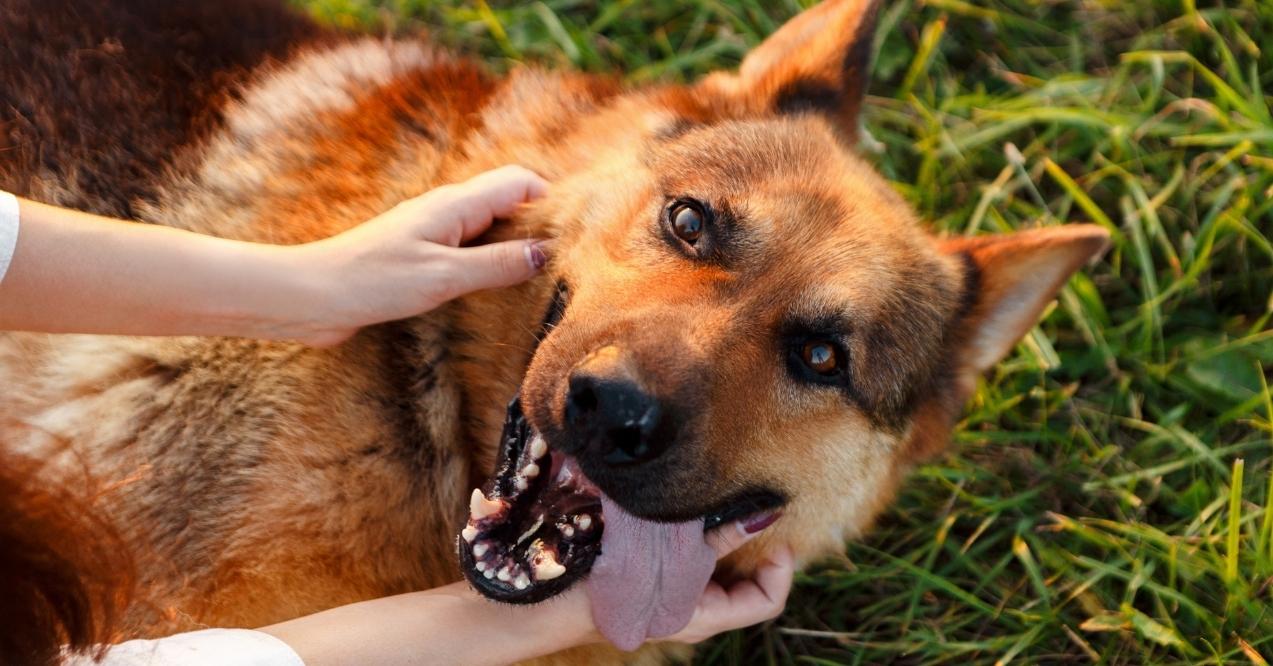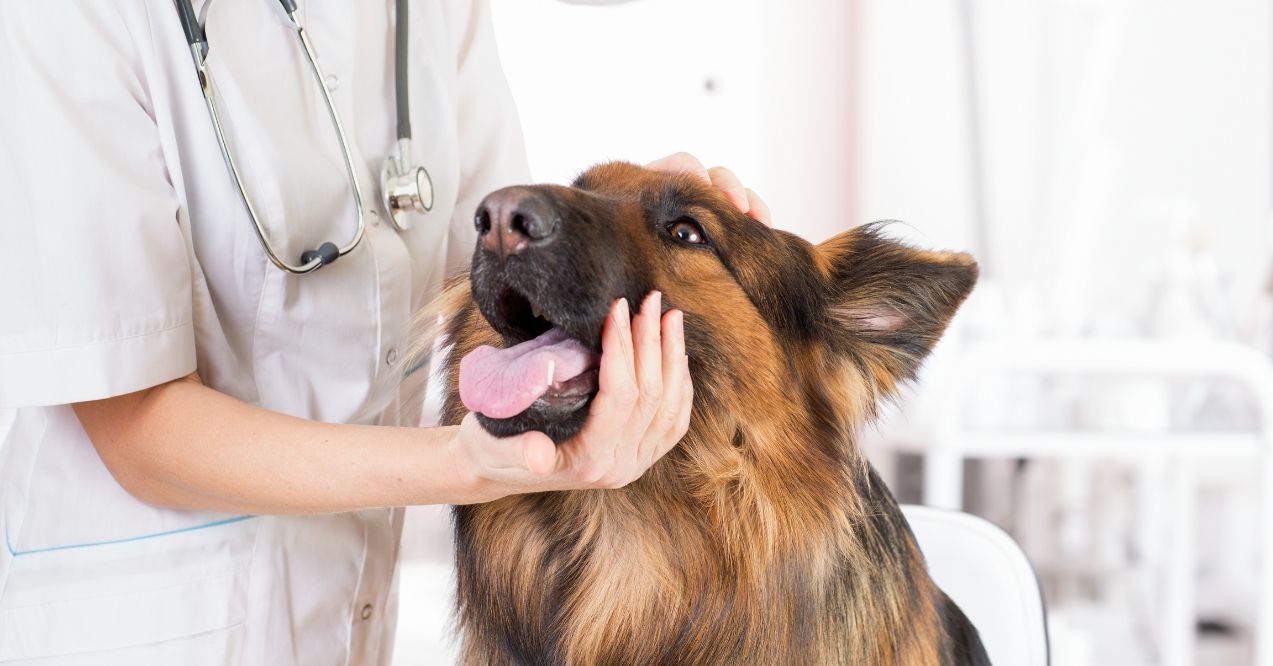11 Common German Shepherd Health Problems
German Shepherds captivate us with their unwavering loyalty, remarkable intelligence, and boundless energy. These beloved companions bring joy to countless homes, yet their active nature and distinctive physical traits can make them susceptible to specific German Shepherd health problems.
This guide empowers you to recognize early warning signs and implement daily habits that support your furry friend’s vitality, ensuring your loyal protector remains by your side for years to come.
Why German Shepherds Are Prone to Certain Health Issues
German Shepherds stand out as one of the most versatile working breeds, with their distinctive sloped back, powerful build, and keen intelligence. These same characteristics that make them exceptional companions and working dogs also contribute to their unique health problems in German Shepherd dogs.
Large Frame & Joint Load
The German Shepherd’s muscular frame and substantial size create natural stress points throughout their skeletal system. Their active nature means constant impact on weight-bearing joints, particularly when:
- Running on hard surfaces
- Jumping from heights
- Making quick directional changes during play
- Climbing stairs repeatedly
Sensitive Digestion & Eating Habits
Many German Shepherd owners discover their companions have particular dietary needs. Their digestive systems often respond dramatically to:
- Sudden dietary changes
- Inappropriate food choices
- Irregular eating schedules
- Stress-related situations
Emotional Awareness & Stress Signals
Few breeds match the German Shepherd’s emotional intelligence and devotion to their families. This sensitivity extends to their physical well-being – they often display subtle behavior changes when experiencing discomfort.
German Shepherd common health problems often manifest first through behavioral changes such as:
- Decreased interest in regular activities
- Unusual restlessness or lethargy
- Increased panting without temperature cause
- Changes in social interaction with family members
- Reluctance to be touched in specific areas
11 Common German Shepherd Health Problems

The majestic German Shepherd holds a special place in many dog lovers’ hearts. Known for their loyalty, intelligence, and versatility, these dogs make exceptional family companions and working partners. Understanding essential German Shepherd information about their health needs is crucial for ensuring they live their best lives.
1. Joint Discomfort in Hips or Elbows
Among the most common health problems for German Shepherds are joint issues, particularly in the hips and elbows. Watch for these subtle signs:
- Reluctance to climb stairs or jump into cars
- Stiffness when rising from rest
- Decreased interest in previously enjoyed activities
- Sitting down during walks or lagging behind
- Visible favoring of certain legs
Supporting joint health can involve providing memory foam or orthopedic bedding that cushions pressure points. Consider introducing low-impact exercise like swimming or controlled leash walks rather than high-impact running on hard surfaces.
2. Hind-Leg Weakness Over Time
As German Shepherds age, many experience changes in their hind leg strength and coordination. Learning how to strengthen old dogs in hind legs becomes an important concern for many owners who notice:
- A swaying or wobbly gait when walking
- Dragging of the back feet or nails
- Difficulty rising from a lying position
- Hesitation before using stairs
- Sitting down suddenly during walks
Creating a supportive environment makes a significant difference. Consider installing ramps for accessing cars or furniture, using non-slip flooring or rugs on slippery surfaces, and implementing gentle exercises that maintain coordination.
3. Digestive Sensitivities
Recognizing common German Shepherd health issues frequently includes understanding digestive sensitivities that can affect their quality of life. Signs your dog might be experiencing digestive discomfort include:
- Inconsistent stool quality or frequency
- Noticeable discomfort after eating
- Periodic lack of appetite
- Excessive gas or stomach noises
- Visible bloating after meals
Supporting digestive wellness means establishing consistent feeding routines with meals at the same times each day. Portion control and slow-feeding bowls can prevent gulping air while eating. Food choices matter tremendously – many German Shepherds thrive on easily digestible proteins and limited ingredient diets that avoid common triggers.
4. Belly Bloating or Discomfort After Meals
Monitoring for GSD health problems like post-meal discomfort deserves special attention due to the breed’s deep chest. This physical trait makes them susceptible to stomach expansion, especially when eating too quickly. Watch for:
- Visible distension of the abdomen
- Pacing or inability to get comfortable after eating
- Excessive drooling or attempts to vomit
- Restlessness and obvious discomfort
- Rapid or shallow breathing after meals
Understanding how to help a dog’s upset stomach starts with prevention strategies. Feed smaller meals more frequently rather than one or two large meals. Use elevated slow-feeder bowls that prevent gulping. Create a calm eating environment away from other pets or distractions.
5. Excessive Shedding & Coat Issues
German Shepherds are notorious shedders, but recognizing signs of unhealthy dog coat that go beyond normal shedding include:
- Brittle, dry hair that breaks easily
- Dull coat lacking normal luster
- Bald patches or thinning areas
- Excessive dandruff or flaking
- Irritated skin beneath the fur
Supporting coat health begins with consistent grooming – daily brushing during heavy shedding seasons and at least weekly year-round. Nutrition plays a crucial role, with omega-3 and omega-6 fatty acids supporting skin moisture and coat shine.
6. Itchy Skin or Allergic Reactions
Many German Shepherds experience seasonal or environmental sensitivities that manifest through skin reactions. Signs include:
- Excessive scratching, particularly of the same areas
- Frequent licking or chewing of paws
- Redness on the belly, armpits, or groin
- Rubbing face against furniture or carpeting
- Ear inflammation accompanying skin issues
Creating a skin-friendly environment means washing bedding weekly in fragrance-free detergent, using HEPA filters in your home, and wiping paws after outdoor adventures.
7. Recurring Ear Scratching or Odor
The German Shepherd’s partially upright ears create unique airflow patterns that can contribute to ear concerns. Watch for:
- Frequent head shaking or ear scratching
- Redness or swelling inside ear flaps
- Unpleasant odor from ear area
- Dark discharge or excessive wax buildup
- Sensitivity when ears are touched
Proactive ear care includes regular visual inspection, especially after swimming or bathing. Gentle cleaning with dog-specific ear solutions can prevent wax buildup. Keeping the hair trimmed around ear openings improves airflow.
8. Weight Gain & Lower Energy
Addressing GSD health issues often includes managing metabolic changes that can lead to weight gain, particularly in middle-aged or senior dogs. Warning signs include:
- Gradual expansion of waistline or loss of visible waist
- Decreased stamina during regular activities
- Reluctance to engage in previously enjoyed exercise
- Heavier breathing during mild exertion
- Joint discomfort that worsens with weight gain
Maintaining ideal weight requires adjusting food intake to match current activity levels – especially important as dogs age and naturally slow down. Implement structured daily exercise appropriate for your dog’s condition, including mental stimulation which burns calories without joint strain.
9. Behavior Shifts & Clinginess
German Shepherds often signal physical discomfort through behavior changes before other symptoms appear. Take note if your dog:
- Becomes unusually clingy or withdrawn
- Shows reduced interest in play or interaction
- Displays increased irritability or sensitivity
- Exhibits persistent restlessness or difficulty settling
- Vocalizes more than usual (whining, groaning)
Understanding why do dogs bite themselves often relates to stress, discomfort, or sensory imbalances. Creating a journal of behavior changes alongside environmental factors helps identify patterns.
10. Eye Changes With Age
As German Shepherds mature, their eyes may undergo changes affecting vision and comfort. Signs include:
- Hesitation when navigating in dim light
- Bumping into objects that weren’t there before
- Cloudy appearance in one or both eyes
- Redness or excessive tearing
- Squinting or sensitivity to bright light
Supporting aging eyes involves practical home adjustments like nightlights in hallways, consistent furniture arrangement, and textured floor transitions between rooms. Avoid sudden light changes and keep walkways clear.
11. Sensitivity to Environmental Changes
Monitoring for German Shepherd health issues often includes noting their remarkable sensitivity to routine disruptions, which can manifest physically. Be attentive when:
- Moving to a new home
- Introducing new family members (human or animal)
- Experiencing construction or renovation noise
- Changing caretakers or schedules
- Traveling or boarding
Supporting your sensitive companion through changes means creating consistency wherever possible. Maintain feeding and exercise schedules even when other factors change. Designate a “safe room” with familiar bedding, toys, and reduced stimulation during high-stress periods.
Supporting German Shepherd Wellness Daily

Creating a wellness routine for your German Shepherd doesn’t require medical expertise—just consistent attention to their unique needs. By incorporating simple daily habits, you can help your loyal companion maintain vitality throughout their life stages while addressing the breed’s common sensitivity points.
Movement & Mobility Care
German Shepherds thrive with consistent, appropriate exercise that supports joint health. Aim for daily low-impact activities like controlled leash walks, swimming, or gentle hiking on natural terrain rather than concrete.
Consider adding joint-supporting supplements to their routine early in life, rather than waiting for signs of discomfort. Regular “mobility checks” where you observe their movement patterns can help identify subtle changes before they become significant issues.
Digestive & Meal Care
Create a designated quiet feeding zone away from household traffic and other pets. Establish fixed meal times that align with your daily schedule to provide digestive consistency. Consider elevated feeders that promote better posture during meals, paired with slow-feed bowls for eager eaters.
Many German Shepherds respond well to easily digestible proteins and limited ingredient diets that avoid common triggers like chicken or grains for sensitive stomachs.
Skin & Coat Routine
Establish a consistent brushing schedule – at least 2-3 times weekly with a slicker brush followed by an undercoat rake – to remove loose fur before it mats or sheds throughout your home. Monthly “deep coat checks” where you part the fur can catch early signs of irritation or changes in skin condition.
Consider seasonal bathing with moisturizing, oatmeal-based shampoos that support skin barrier function without stripping natural oils that protect your shepherd’s double coat.
Conclusion
Staying attentive to potential German Shepherd health problems allows you to support your loyal companion throughout their life journey. By understanding their unique physical structure, implementing consistent daily care routines, and recognizing early warning signs, you can enhance your shepherd’s quality of life.
Your proactive attention to joint health, digestive wellness, and environmental sensitivities creates the foundation for many joyful years together.
German Shepherds commonly experience joint discomfort in hips and elbows, hind-leg weakness, digestive sensitivities, and skin/coat issues. Their deep-chested build can lead to post-meal bloating, while their active nature may contribute to weight management challenges as they age.
Yes, age-related concerns often develop in German Shepherds as they mature. Many experience progressive hind-leg weakness, joint discomfort, eye changes, decreased energy levels, and digestive sensitivities. Their stoic nature means these changes may be subtle until significantly advanced.
Provide orthopedic bedding, implement low-impact daily exercise like swimming or controlled walks, add joint-supporting supplements containing glucosamine and omega fatty acids, maintain ideal weight, use ramps for furniture/cars, and install non-slip flooring to prevent injuries.
Yes, many German Shepherds have notably sensitive digestive systems. They often respond poorly to sudden food changes, gulping air while eating, or consuming inappropriate foods. Consistent feeding schedules, elevated slow-feed bowls, and limited-ingredient diets can support their digestive comfort.
Advertisement. This site offers health, wellness, fitness and nutritional information and is designed for educational purposes only. You should not rely on this information as a substitute for, nor does it replace, professional medical advice, diagnosis, or treatment. If you have any concerns or questions about your health, you should always consult with a physician or other health-care professional. Do not disregard, avoid or delay obtaining medical or health related advice from your health-care professional because of something you may have read on this site. The use of any information provided on this site is solely at your own risk.




















